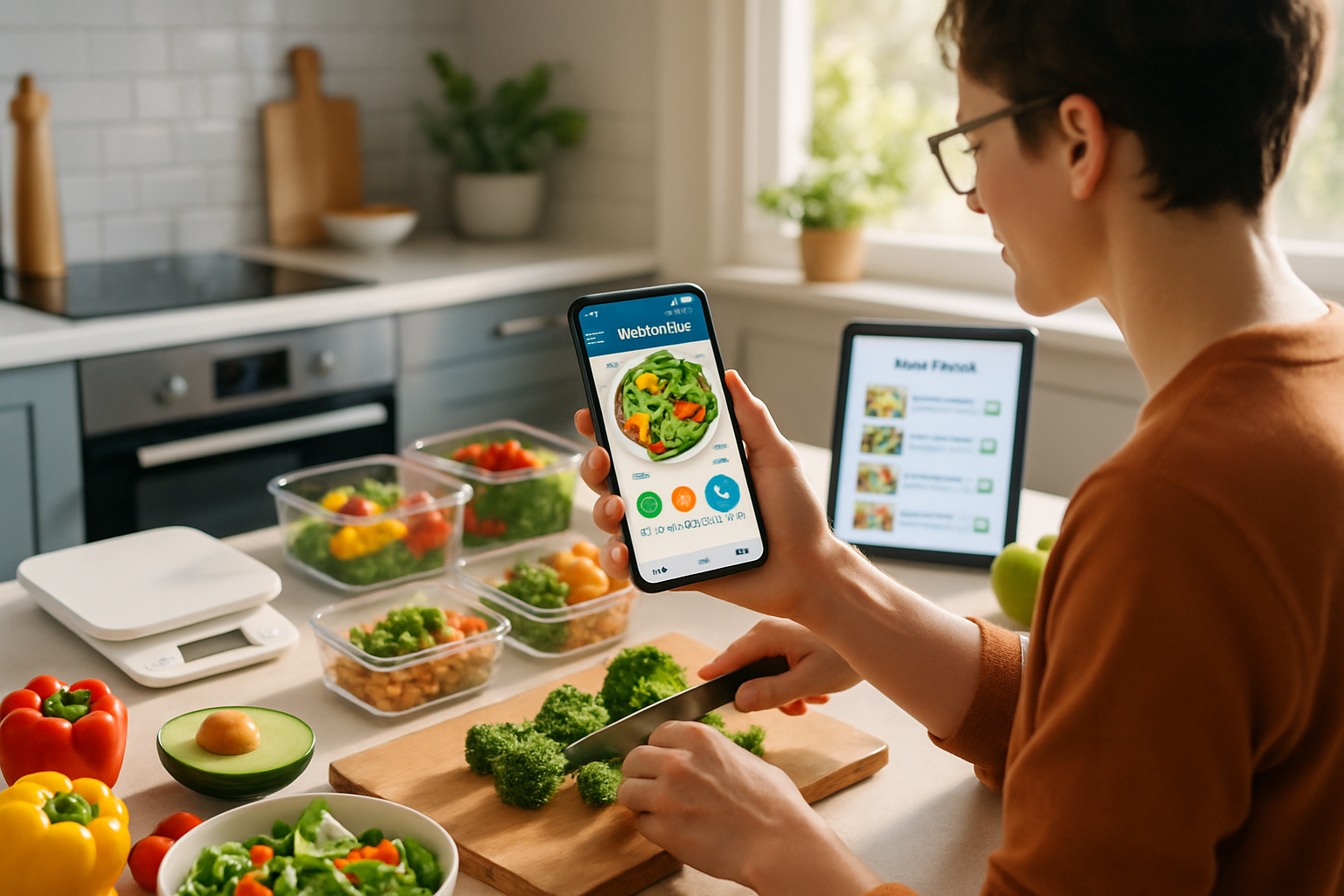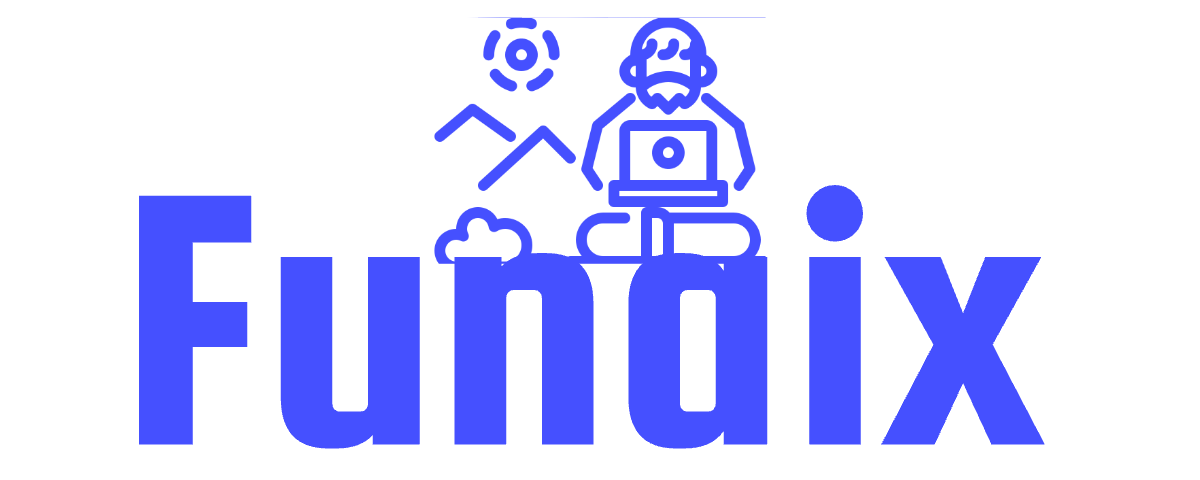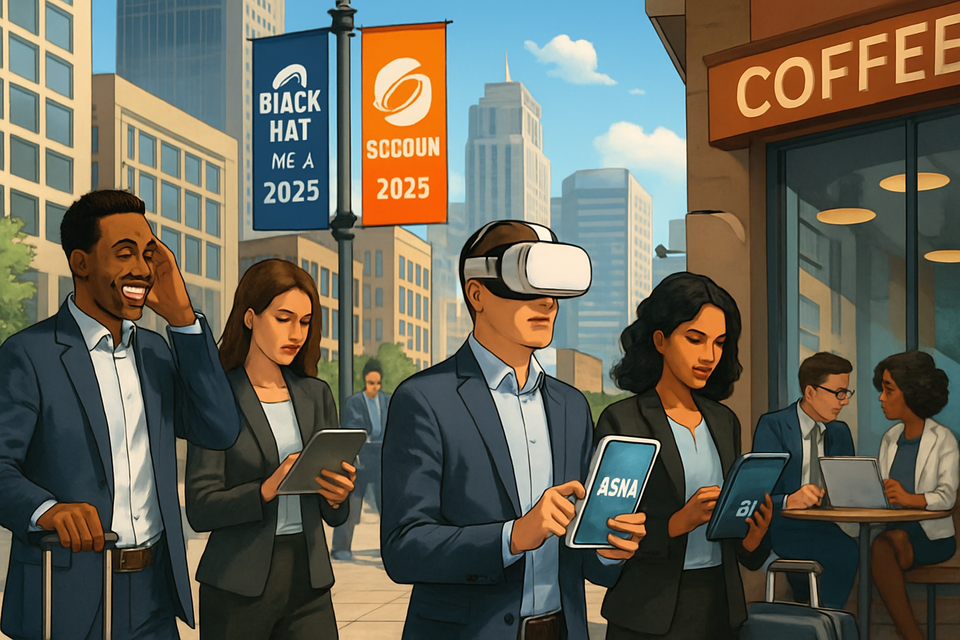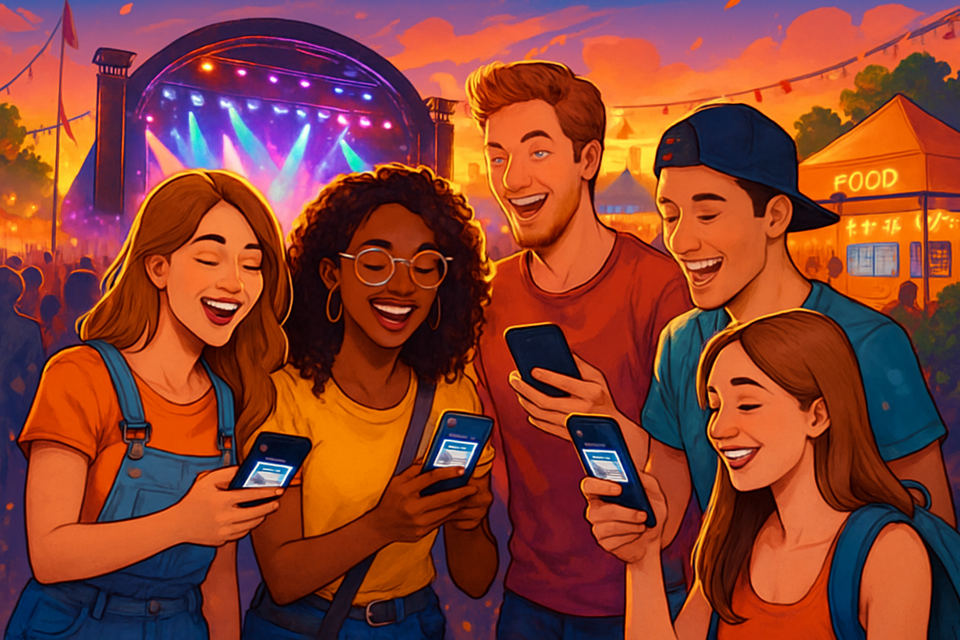The Great AI Diet Experiment: 30 Days, 30 Apps, 1 Real Life – Does Machine-Personalized Nutrition Actually Work?
Can AI health apps really transform your lifestyle, or are they just adding to your digital overwhelm? Dive into a 30-day experiment where tech meets wellness, and discover if algorithms can finally curb those midnight cravings.

By Funaix Editorial | August 4, 2025
“If AI can beat grandmasters at chess, can it finally outsmart my midnight snack cravings?”
Prologue: The Digital Dieter’s Dilemma
Let’s face it: the modern app store is a nutritional jungle. It’s 2025, and your phone is just one download away from being your personal dietitian, sleep coach, microbiome whisperer, and (if you’re not careful) guilt dispenser. But do these AI-powered nutrition apps and wearables actually deliver on their promise of healthier, happier living—or do they just turn your life into a never-ending spreadsheet of macros, steps, and serotonin scores?
The Ground Rules: 30 Days, 30 Apps, No Filter
For one month, I became a human guinea pig—testing 30 of the most-hyped AI nutrition and wellness apps. From genetic diet plans to real-time glucose tracking, from barcode-scanning meal loggers to mood-driven meal suggestions, nothing was off-limits. Every day, I tracked food, mood, sleep, workouts, and the weird side effects (looking at you, kale smoothie phase). My goal: to see if machine-personalized nutrition is just a data-driven fad, or the secret to real, sustainable change.
The Contenders: A Quick Roll Call
- MyFitnessPal
- Lifesum
- Noom
- ZOE
- Oura
- InsideTracker
- Viome
- Care/of
- HelloFresh
- Fitbit
- Apple Health
- Nutrisense
- and many, many more…
*No sponsorship. No mercy.
Week 1: The AI Onboarding Tsunami
Day 1: I’m greeted by a barrage of onboarding quizzes. “What’s your genetic ancestry?” “How’s your gut feeling?” “Describe your sleep in three emojis.” Each app wants my most intimate secrets, promising a bespoke health journey. By the end, I’ve revealed more to my phone than to my last four therapists combined.
First Impressions:
- Data Overload: Connecting wearables, logging meals, and syncing DNA tests is overwhelming, but oddly satisfying for a spreadsheet nerd.
- Promises, Promises: Each app promises “life-changing insights” and “microbiome harmony”—but so far, I mostly get push notifications reminding me to drink water.
Apps in the Spotlight
- MyFitnessPal: Still the calorie-counting king, but now with AI meal suggestions based on your past food logs and exercise patterns.
- ZOE: Ships a home test kit for gut, blood fat, and sugar response. AI crunches the results and claims to know my body better than I do. (Should I be flattered or scared?)
- Oura: Sleep tracking meets recovery advice. Each morning, my AI “Sleep Coach” suggests when to eat carbs for optimal circadian rhythm. (My inner night owl is skeptical.)
Week 2: The Data-Driven Honeymoon (and the First Cracks)
Day 8: My phone now pings more than my actual friends. “Your blood glucose spiked after that croissant.” “Try a 10-minute walk to optimize fat metabolism.” “Consider swapping lentils for chickpeas.”
Wins:
- Accountability: Knowing the AI is “watching” makes me think twice before inhaling an entire pizza.
- Micro-Feedback: Instant nudges (“hydrate now!”) actually help me break bad habits—at least for a few days.
Challenges:
- App Fatigue: Juggling multiple dashboards becomes a part-time job. I dream in pie charts and sleep scores.
- Analysis Paralysis: Contradictory advice: one app says “more protein,” another says “less red meat.” My brain is now a food debate club.
Week 3: The Personalization Paradox
Day 15: Some apps start to shine. Care/of adapts my supplement stack after I log a week of low energy. Nutrisense shows how my blood sugar reacts to different breakfasts—turns out, oatmeal is my frenemy.
Biggest Surprises:
- DNA & Microbiome Testing (ZOE, Viome): The science is fascinating, but the practical advice? Sometimes oddly generic (“Eat more fiber!”), other times hyper-specific (“Avoid lima beans, embrace Jerusalem artichokes”).
- AI Coaching (Noom, Oura): The behavioral nudges work best when they’re positive. Shame-based pop-ups (“You skipped your workout. Again.”) just make me want to delete the app and eat ice cream in protest.
Week 4: The Human Factor
Day 22: Real talk: No algorithm can anticipate my 2AM stress cravings after a rough workday. But I notice something weird: after three weeks, I’m actually craving healthier food. My “default” meals have shifted. The AI didn’t change my life overnight—but the daily nudges, and the sheer act of paying attention, seem to be rewiring my choices.
Unexpected Side Effects:
- Better Sleep: Oura’s sleep-mood tracking helps me spot patterns (late-night emails = bad dreams).
- Social Awkwardness: Explaining to friends why I’m photographing every meal and scanning barcodes at brunch. (Pro tip: own it with confidence, or risk mockery.)
- Less Food Guilt: The best apps celebrate progress, not perfection. That’s a win for my mental health.
Final Stats: Did AI Actually Make Me Healthier?
Here’s what changed after 30 days:
- Weight: -2.7 kg (mostly steady, no crash diets)
- Average Sleep: +42 minutes/night
- Energy & Mood: Marked improvement, especially on days with good sleep and balanced meals
- Food Cravings: Down ~40% (subjectively speaking—midnight cookie attacks still possible)
- Blood Glucose Variability: Reduced (according to Nutrisense CGM data)
The Verdict: AI Nutrition—Revolution or Hype?
The Good: AI-powered nutrition apps can nudge you towards healthier habits. Real-time feedback, gentle reminders, and personalized insights make a difference—if you’re willing to engage.
The Bad: No app is a miracle worker. Tech can’t replace self-awareness, motivation, or the occasional need for a human touch (or a celebratory donut).
The Weird: The more you track, the more you realize how much your health is shaped by sleep, stress, and social life—not just macros and steps. The top apps integrate these factors best.
“The future of wellness is not about outsourcing your health to an algorithm—it’s about using smart tools to become more curious, more conscious, and (ideally) more compassionate with yourself.”
Behind the Scenes: Transparency & Tips for Would-Be Digital Dieters
- Data Privacy: Read the fine print. Your microbiome secrets are valuable—don’t give them away lightly.
- Start Small: Pick one or two apps to begin. Layering too many at once is a recipe for overwhelm (and existential dread).
- Focus on Progress, Not Perfection: The best apps reward consistency over all-or-nothing thinking.
- Trust, But Verify: If advice sounds wacky (“Eat nothing but fermented turnips!”), check with an actual human expert.
Want to Join the Conversation?
Only Funaix Insiders can comment and read the community’s candid stories. Subscribe for free (for now) to swap tips, share your own digital diet experiments, and help us keep the conversation honest—and fun. No bots, just real people.
Like this experiment? Don’t miss our next deep-dive—subscribe and be the first to know.




